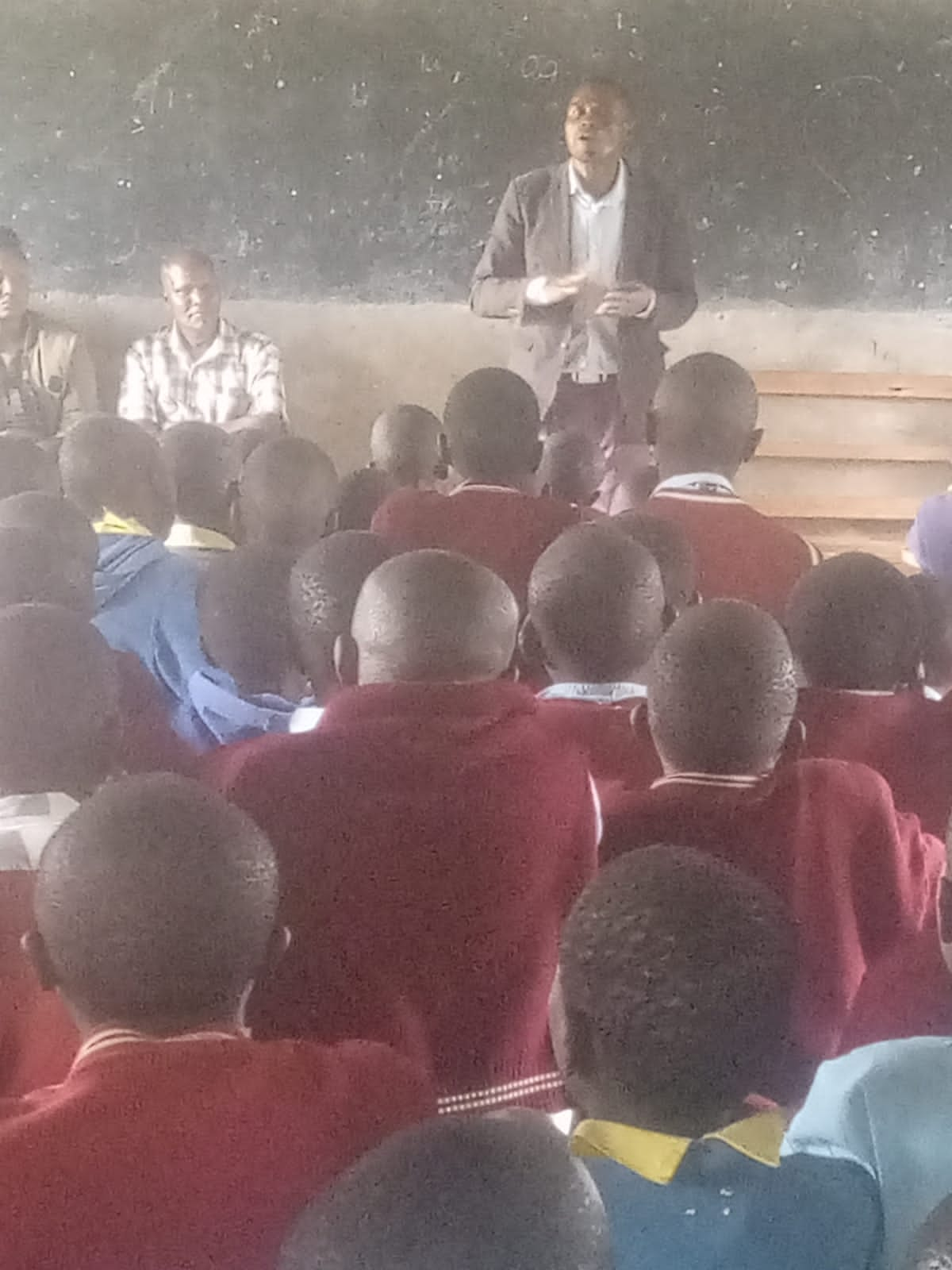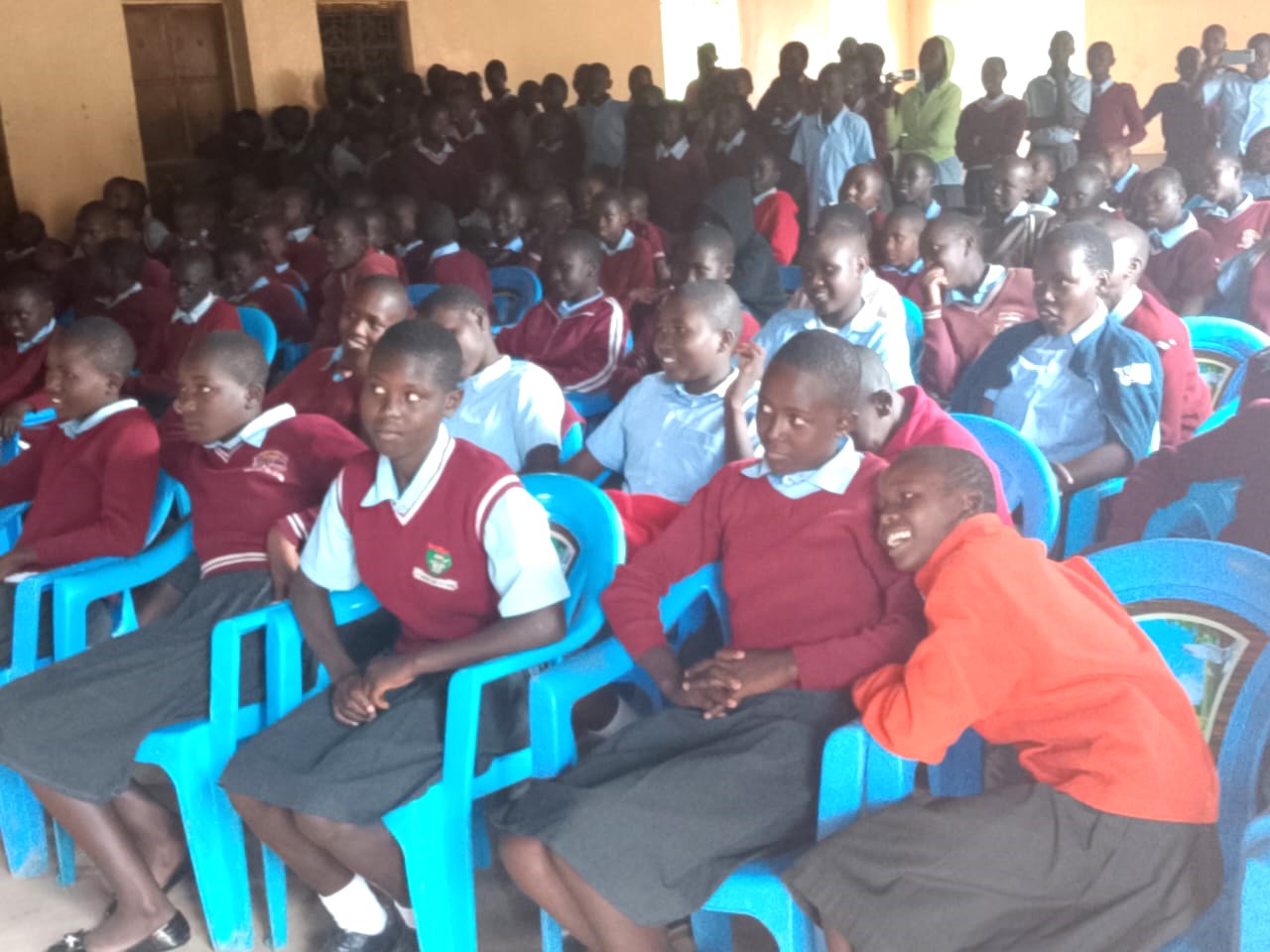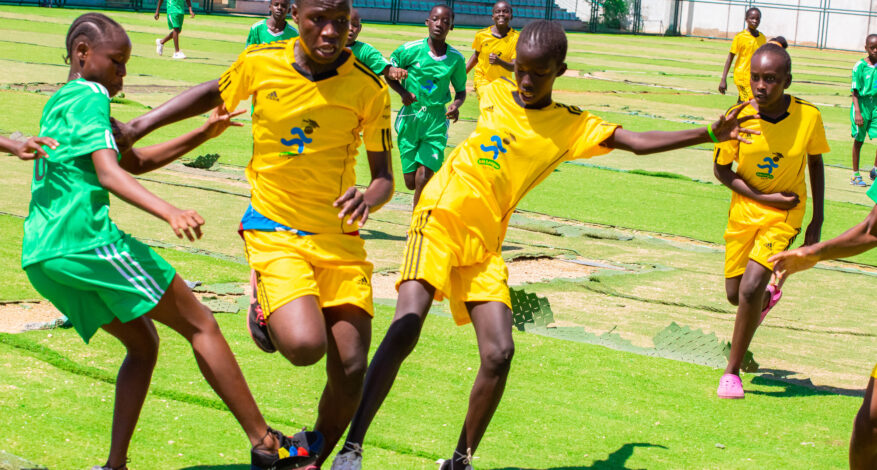Talau Comprehensive School students in West Pokot County recently took part in a life-changing mentorship program on drug abuse and HIV prevention. The session, led by Nyaata Wilfred, brought tears, reflection, and renewed commitment to responsible living.
In his moving testimony, Nyaata shared how, as a young student struggling to pay school fees, he was helped by an older woman who seemed caring and supportive. “She looked perfectly healthy and carried herself with confidence,” he recalled. “She told me she was a teacher and had studied at university. I trusted her completely.”
However, what appeared to be kindness later turned tragic. “I contracted HIV in 2010,” Nyaata revealed. “But I only discovered it two years later. I couldn’t believe it, because she looked normal — strong, beautiful, and well-educated. That experience taught me that HIV has no face.”
He went on to describe how the discovery shattered his dreams and led him into depression and substance abuse. “I tried alcohol and bhang, thinking they would ease the pain,” he said, “but they only made me weaker and hopeless.” Eventually, he sought counselling, began treatment, and accepted his status.
Through strength and faith, Nyaata turned his pain into purpose. “I decided to speak out,” he said. “I learned that silence kills, but openness saves lives. HIV doesn’t show on the face — and that is why everyone must stay alert, abstain, and make wise choices.”
He cautioned the students that education, beauty, or wealth cannot reveal a person’s HIV status, and that the only safe way is abstinence and self-control. “Do not be deceived by appearances or material offers,” he warned. “Protect your dreams before it’s too late.”
ALSO READ:
Discipline is built at home, nurtured in school; not vice versa
His words echoed deeply among the learners, many of whom said they had never heard such a real and personal story. Teachers praised the session for helping demystify HIV, reduce stigma, and strengthen moral awareness among the youth.
After the session, students shared heartfelt reflections about what they had learned. Many confessed that they had previously thought HIV could only be recognized through physical appearance, but Nyaata’s story changed that belief.
“I learned that HIV is not written on the face,” said one Form Three student. “The best protection is abstinence and making wise choices.”
Others expressed gratitude for the mentorship, saying it opened their eyes to the dangers of both drug abuse and deceptive relationships. “Peer pressure and curiosity are real temptations,” said another student. “But hearing from someone who lived through it made the message real and unforgettable.”
Principal Isaac Kipchoge Sitienei lauded the initiative, noting that it took teachers, workers, and learners through a spine-chilling experience that exposed the hidden dangers of moral decay and carelessness. “This was not just a talk — it was a wake-up call,” he said. “The testimony reminded us that HIV and drug abuse are real threats within our society. As a school, we must strengthen moral and health education so that our learners make informed choices.”
He further thanked the mentorship team and urged all students to become ambassadors of discipline and moral responsibility.
Guidance and Counselling Mistress, Mrs. Sylvia Chemkung, described the session as timely and transformational. “Many students silently struggle with emotional and social pressures,” she said. “Hearing a living testimony helped them connect reality with choices. Guidance and counselling will continue reinforcing the same values — self-control, faith, and responsibility.”
ALSO READ:
MoE drops ‘mentally handicapped’ label in schools to uphold learners’ dignity
She added that the department will continue organizing more mentorship sessions in collaboration with health and faith-based partners to ensure sustained awareness and behavioral change.
The school administration pledged to integrate life skills, moral guidance, and health education into the curriculum. Teachers vowed to provide continued support to learners through regular talks and counselling sessions.
The mentorship team concluded with a call to action: that every student should become a champion of positive behavior, rejecting drugs, avoiding risky behavior, and helping peers make safe choices
The story of Nyaata Wilfred stands as a mirror for society — a reminder that HIV is real, silent, and indiscriminate. It also shows that recovery and purpose are possible through courage, openness, and faith.
As Talau Comprehensive School demonstrated, mentorship remains one of the most powerful tools in safeguarding the next generation from the twin dangers of drug abuse and HIV infection.
If more schools embrace similar programs, Kenya will raise a generation that is not only knowledgeable but also morally grounded and self-aware — ready to say no to drugs, resist temptation, and choose life.
By Hillary Muhalya
You can also follow our social media pages on Twitter: Education News KE and Facebook: Education News Newspaper for timely updates.
>>> Click here to stay up-to-date with trending regional stories
>>> Click here to read more informed opinions on the country’s education landscape






